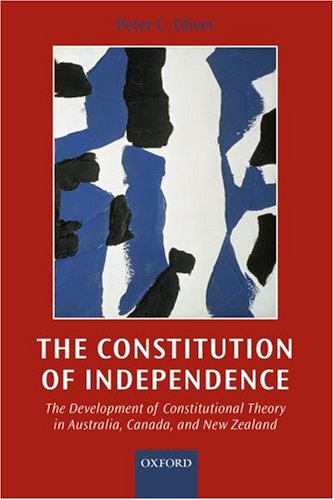
The Constitution of Independence is a contribution to the newly rejuvenated subject of comparative Commonwealth constitutional law, politics, and history. In Australia, Canada, and New Zealand, a series of fascinating developments have been under way for more than a decade, characterized by independent thinking, experimentation, and cross-Commonwealth borrowing of constitutional ideas. These include the final termination of constitutional ties with the United Kingdom Parliament;(completed in each country's case in the 1980s) and the emergence of controversial issues including variably entrenched or implied rights and freedoms; wide-ranging claims by indigenous peoples; republicanism; and assertions of national, popular, and sectional sovereignty.
This book explores the development of constitutional thinking in Australia, Canada, and New Zealand from early domination by Imperial ideas, through the adoption of the Statute of Westminster and the contemplation of severing Imperial connections, to irreversible acquisition of constitutional independence in the 1980s. This book focusses primarily on sovereignty and the legal system, concepts which are also central to contemporary constitutional theory in Europe and the United States.
The book closes with an evaluation of recent varied and often contradictory accounts of the constitutional foundations of Australia, Canada, and New Zealand, which depict a wide range of scenarios: from constitutional continuity and respect for the rule of law, to popular sovereignty and disguised revolution. Oliver argues that explanations of constitutional independence are characterized by their reliance on independent, country-specific constitutional thinking that evolved over the last century.